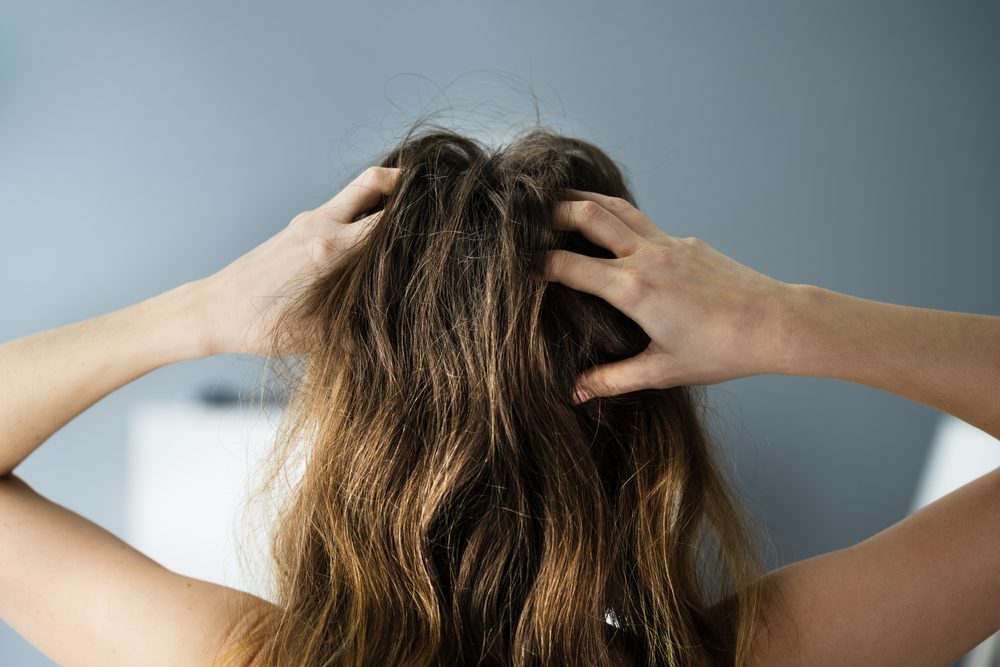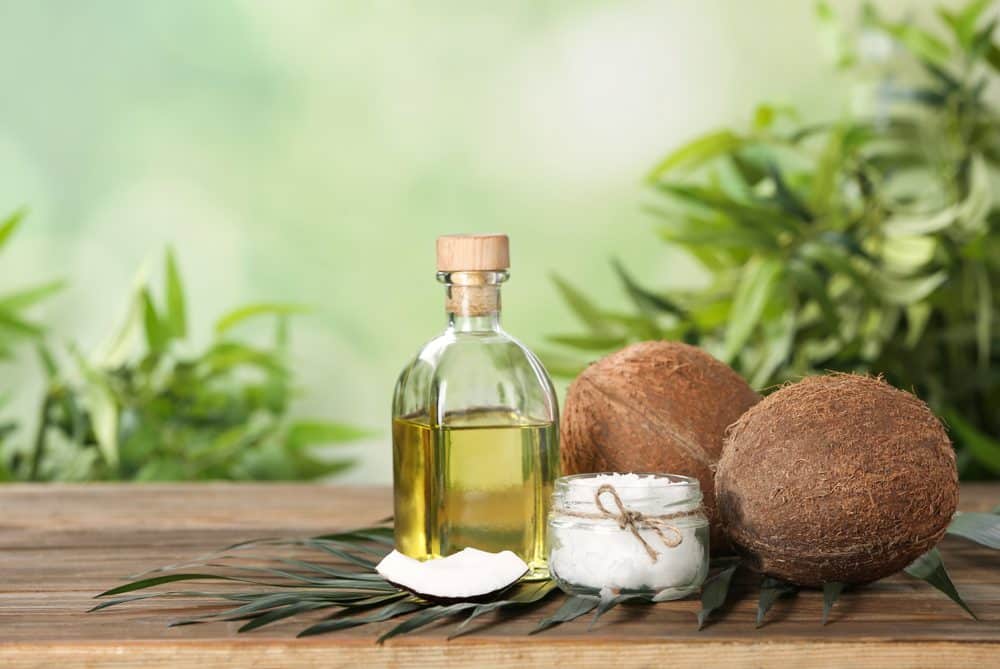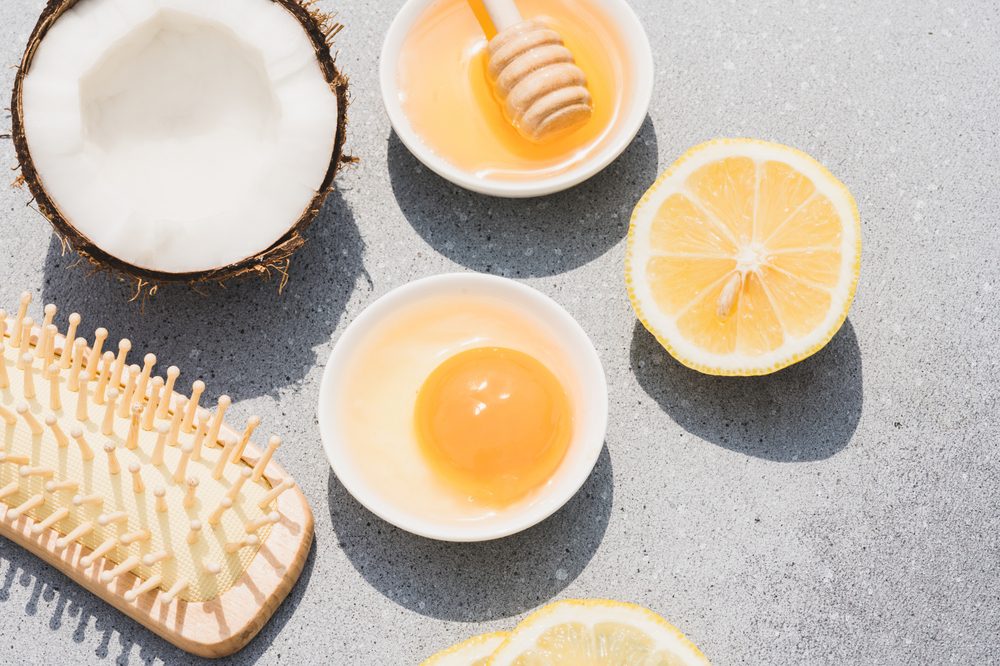Seborrheic dermatitis is a dermatological condition represented by chronic inflammation predominantly in the scalp, which is not contagious.
The disease most often affects males due to the fact that excessive sebum production by the sebaceous glands (the main predisposing factor) is under the regulation of androgen hormones.
Until now, the exact causes of seborrheic dermatitis have not been established, and the manifestations of chronic inflammation that accompany this disease are similar to those of other conditions such as psoriasis and atopic dermatitis of sensitive skin.
However, it has been discovered that seborrheic dermatitis is frequently associated with hyperhidrosis, vitamin B deficiency, high-calorie diets and obesity.
For adults, the changes appear especially at the level of the cephalic extremity in the scalp area, with the appearance of red inflammatory lesions, covered by white-yellow fatty scales with the characteristic appearance of fatty dandruff. The inflammatory process can spread to areas with increased seborrhea that causes oily skin: forehead, eyebrows, wings of the nose, beard, back or upper chest, being accompanied by itching.
For babies, seborrheic dermatitis affects both the scalp and the areas that come in contact with the diaper, while for adolescents the lesions may extend from the cephalic extremity to the armpits and the upper chest (shoulders).
In some situations, the evolution of the disease is self-limiting (it resolves spontaneously without treatment) but in most cases, it reappears and requires specialized treatment.
Creams, ointments with antifungals and hydrocortisone can improve the symptoms of the disease by limiting the extent of lesions while oral medication is reserved for situations not responsive to the first therapeutic option, being the second treatment option.

Natural Remedies For Seborrheic Dermatitis
1. Treat dandruff and dry scalp
Dandruff (excessive loss of dead skin on the scalp) is very common in both adults and children, but this does not mean that it is normal.
Studies show that swelling is, in fact, an excessive accumulation of dead skin and its causes include low immune function, reactions to dry winter air, a deficiency of vitamins and the effect of harsh chemicals in some shampoos.
Malassezia saprophytic fungi live on the scalp of most adults, but when they multiply excessively, they can cause excessive growth of skin cells that will later die and fall off.
2. Strengthen your immune system
Low immune function and high levels of inflammation (sometimes combined with hormonal imbalances) are at the root of most skin conditions. Skin irritations are often caused or at least aggravated by chronic stress, depression, anxiety and fatigue. For better immunity, these recommendations should be followed:
-Sleep for 7-8 hours per night
-Exercise regularly, to keep stress under control
-Use Omega 3, fatty acid supplements and probiotics;
-Spend time in nature or be sure to be exposed to the sun every day;
-Find some hobbies and maintain social relationships for a sense of connection and relaxation;
-Find some activities for relaxation, such as meditation, yoga, prayer, reading, writing or volunteering;
-Use adaptogenic plants that can help reduce stress and cortisol;
-Increase the consumption of anti-inflammatory foods: turmeric, garlic, apple cider vinegar, bananas, avocados, flax seeds, ginger and coconut oil.
3. Reduce the consumption of inflammatory foods and allergens
To keep inflammation as low as possible, the diet should contain as few unprocessed products as possible and as many whole foods as possible. Processed foods that are known to trigger autoimmune reactions and allergies should be reduced, including:
-Sugar and sweetened beverages;
-Processed corn, soybean, palm, rapeseed and sunflower oils;
-Fried foods and trans fats;
-For those prone to allergies, refined food containing wheat, dairy, seafood and peanuts.
4. Hydrate properly
The skin should be properly hydrated by proper fluid intake. Avoid excesses of salt, alcohol, caffeine or sweetened beverages, which could cause and exacerbate dry skin. Instead of these, you should choose coconut water, green tea and smoothies or fresh and homemade juices.

5. Use coconut oil and essential oils
Coconut oil contains fatty acids, lauric acid and capric acid, with very strong antiviral, antimicrobial and antifungal properties. Coconut oil applied on the skin can reduce fungi, microbes and other pathogens that can irritate, fatten or dry the skin. Or, better yet, coconut oil is used in combination with essential oils, such as cedar oil, lemon, rosemary, tea tree and lavender.
6. Avoid cosmetics that can irritate the skin
The symptoms of dermatitis can get worse if you regularly use skincare cosmetics with chemicals. Scratching, squeezing pimples and excessive cleansing of the skin can also aggravate its appearance.
Organic and natural products will be used on the skin as much as possible, and you’ll especially need to avoid commercial shampoos full of chemicals if you have dandruff. Most cosmetics contain chemicals that dry or damage the skin, so it is good to opt for products without parabens, sodium lauryl or lauryl sulfate. To cleanse, tone and moisturize the skin without irritating it, you can use products such as apple cider vinegar, tea tree, witch hazelnut, shea butter and aloe vera gel. It is also important to avoid other causes of contact dermatitis, such as:
-Poison ivy or poison oak;
-Scented soaps, detergents, shampoos, fragrances and fragrant lotions that can be found in clothes or textiles;
-Latex (in case of allergy);
-Certain natural products that can trigger an allergy, such as essential oils or active compounds that have been irritated in the past.
7. Aloe Vera
Aloe vera plays a huge part in multiple hair and skin treatments and is well known for its benefits. You’ll need to keep this remedy in mind because of the advantages provided by it and especially the antifungal properties that can help treat seborrhea naturally.
8. Remedy with apple cider vinegar
Apple cider vinegar plays a big role when it comes to natural remedies due to the malic acid in its composition, which is very effective in fighting against fungi and bacteria.
9. Remedy with honey
Honey has properties that act against fungi, and can revitalize the skin’s pH. You can combine it with eggs or simply with water.

10. Remedy with lemon juice and coconut oil
Coconut oil has useful mineral properties when we are talking about cleansing the skin. By combining it with lemon juice, you will get a very efficient and useful remedy; it will fight well against dermatitis.
Massage your scalp and leave the remedy on for 10 minutes before rinsing with some warm water.
Don’t know which coconut oil to buy? We recommend this PURA D’OR Organic Fractionated Coconut Oil from Amazon!
11. Soil soap
Soil (earth) soap is found in the natural pharmaceutical industry. Due to its properties, this product fights against the fungi that cause seborrheic dermatitis.
12. Remedy with lemon
Lemon contains acids and has useful anti-inflammatory properties to control fungi. At the same time, lemons aid the immune system in fighting off viruses. Lemon can cause some burning sensations in contact with the skin, but this means that it’s fighting dermatitis.
What’s YOUR experience with seborrheic dermatitis? Be sure to share your thoughts with us in the comments section below!
And if you found this post on seborrheic dermatitis useful, we also recommend checking out: Are You Getting Enough Vitamin B6? Here Are 5 Important Benefits





